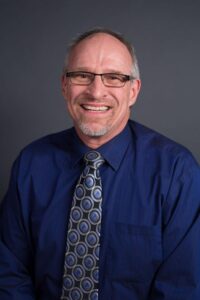 Special Feature: Researcher’s Corner
Special Feature: Researcher’s CornerDr. Paul Moes is a Professor at Calvin University in Grad Rapids, MI and an ACC researcher. Over the years, he has worked with other NODCC affiliated researchers Malcolm Jeeves, Gary & Kathy Schilmoeller, and Warren Brown, and he was included on the original board of the NODCC. Because of the diverse studies he has coordinated, they have included families of individuals with ACC, mice with ACC, and – more recently, adolescents and adults with ACC.
Several years ago, Dr. Moes, along with Gary and Kathy Schilmoeller did a large survey to determine several basic physical and perceptual qualities of individuals with ACC. More recently his research has focused on the function of Probst bundle (a pathway that often develops in the brain when the corpus callosum does not develop). He completed one study on mice examining the Probst bundle. He is currently examining individuals with ACC using EEG (i.e., brain wave activity) to determine the nature of Probst bundle function and how it might influence behavior.
Dr. Moes’ earlier survey research has been helpful for families to identify common traits and to recognize that those characteristics are directly related to the absence of the corpus callosum (as opposed other factors such as being unmotivated, or “difficult”). Dr Moes states, “Because my recent research involves more basic questions, I don’t know the exact impact or benefit to families or individuals. However, my hope is that by understanding more about the Probst bundle, it may help researchers understand potential strengths that individuals may have because of these unusual pathways in the brain. Future therapies may be able to capitalize on those qualities and strengthen them further.” His hope is that his research will lead to a better understanding of strengths and limitations both, but also lead to improved therapies for individuals with ACC and DCCs.
Dr. Moes may need additional participants for a study that began at the Chicago conference in June, 2024. Participants would spend 3-5 minutes meditating with eyes closed and 3-5 minutes watching a video showing emotional expressions, while EEG measures are being recorded. Dr. Moes was able to test 10 individuals using EEG recording of brain waves in Chicago. While ten individuals is a reasonable sample for this type of study, more could always be added. If interested, participants must meet the following criteria:
· Must be 12 years of age or older (if under 18, they must be accompanied by a parent/guardian)
· IQ scores (or some equivalent measure) above 60.
· No significant movement difficulties that would prevent a simple key press response.
· No significant vision problems (i.e., partially blind, difficulty recognizing objects/faces).
· No unmanaged seizure disorder. [Individuals with previous seizures that are controlled by medication can be included.]
· Be willing to share or provide access to de-identified records (i.e., testing results, MRI scans, etc.)
· **Be able to travel to Grand Rapids, Michigan (Dr. Moes does not have travel funds for this study, but there is a very small monetary gift).
Those interested in participating in Dr. Moes current research are welcome to contact him with any questions at pmoes@calvin.edu. To learn more about his research department at Calvin University, feel free to visit the Calvin University Psychology Department site HERE. The NODCC would like to thank Dr. Moes for his commitment to ACC research, and his participation in learning more about these conditions for the betterment of the lives of our NODCC community members and their families. We’re grateful for you!

